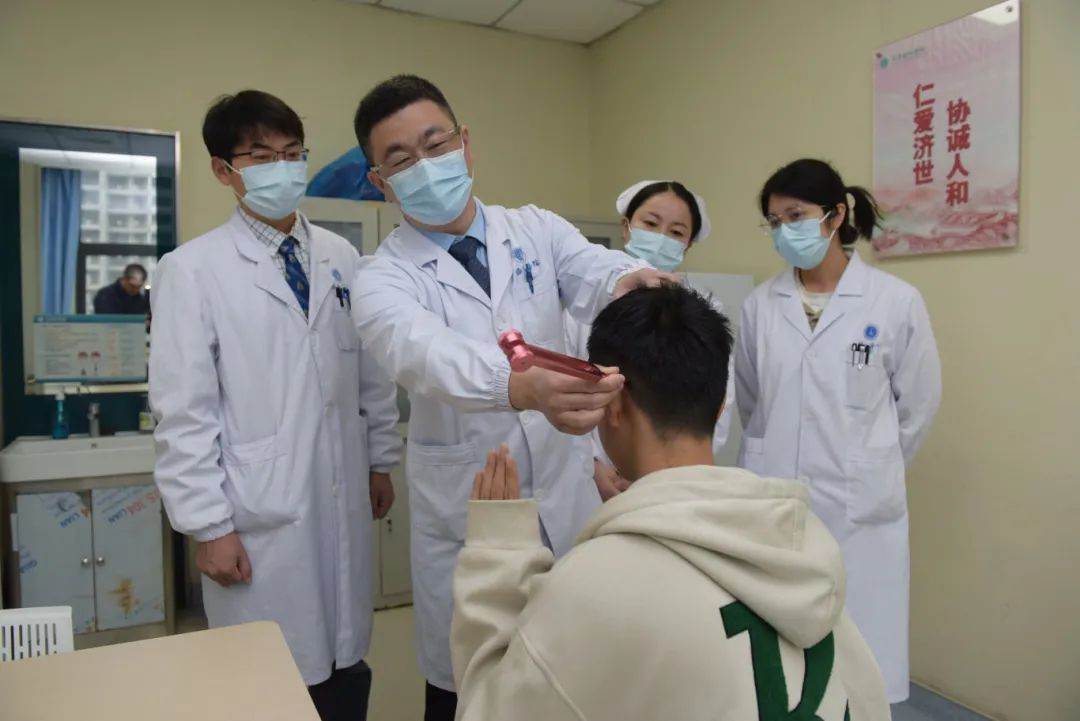Union Hospital, Tongji Medical College, Huazhong University of Science and Technology is carrying out a clinical trial of gene therapy for children with congenital deafness. On February 21, a team from the hospital's Department of Otorhinolaryngology, Head and Neck Surgery performed genetic deafness gene therapy for a patient with congenital deafness. Now, the child's hearing has improved significantly.
In early January, 15-year-old Yangyang (a pseudonym) and his parents came to the Department of Otorhinolaryngology, Head and Neck Surgery of the Union Hospital. Yangyang suffers from extremely severe congenital deafness, with near-total deafness in both ears, and weak hearing in the right ear after cochlear implantation. After evaluation, experts determined that Yangyang's genetic deafness was caused by a mutation in the OTOF gene, which met all the conditions for gene therapy for children with congenital deafness.
On February 9, Professor Xiao Hongjun, Director of the Department of Otorhinolaryngology, Head and Neck Surgery, and Professor Sun Yu's team performed the surgery and injected the gene therapy drug into the patient's inner ear with precision. On the third day after the surgery, the patient's hearing improved significantly. Without a cochlear implant, he was able to perceive the sound of a moving car and alarms from medical devices, which he could not recognize before. During the hearing test on the seventh day after surgery, the patient was able to respond immediately to the sounds triggered by the doctor. Further testing revealed that the patient's low-frequency hearing had been largely restored, while his high-frequency hearing was still to be restored.

Director Xiao Hongjun explained that mutations in the OTOF gene are an important cause of infantile auditory neuropathy, with a mutation frequency of up to 41%. “Due to the deletion of that gene, the hair cells in the cochlea are unable to transmit sound stimulation signals to the next level of auditory neurons, and the patients suffer from essentially complete hearing loss and are unable to form speech.” About 30,000 deaf babies are born each year in China, 60% of whom are related to genetic factors (i.e., genetic defects). Apart from cochlear implants, there is currently no drug for clinical treatment.
Professor Sun Yu said that with the continuous development of science and technology, especially biomedical technology, there is a new hope for the treatment of genetic deafness. Genes with normal function are delivered directly to the inner ear to express functionally normal proteins, restoring normal function and fundamentally restoring or improving the hearing of deaf patients.
Source: https://mp.weixin.qq.com/s/M13LZEfs75DfnBJF_gzegQ




